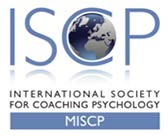Our psychologist's use a number of evidence based therapies to help you achieve more control in your lives and create a more balanced and fulfilling life that gives you more meaning and purpose drawing on your strengths.
Cognitive Behavioural Therapy (CBT)
CBT is a psychotherapeutic treatment which is based on an approach that looks at the way we think (cognitions) and how it affects the way we act (behaviour). The way people view things in life are very different and this is based on a person's beliefs and perceptions. This will lead to many and varied emotional and behavioural responses and hence consequences from this thinking and behaviour. Some of this thinking and behaviour can be helpful, and some not so helpful in our day to day lives. Research has shown that CBT is effective in treating a variety of problems including, anxiety, depression, substance abuse and trauma.
Acceptance and Commitment Therapy (ACT)
ACT is a form of CBT and it works on enhancing human potential by working on developing a better understanding of acceptance of what is outside of one's control, and committing to action that allows a person to live a life with more meaning and purpose in their life according to their values and inspire and motivate you to change your life. Acceptance does not mean that you like something but it works on accepting it is what it is. The therapy teaches practical skills to deal with painful thoughts and feelings to enable them to have less impact on daily functioning. It teaches you how to stay in the here and now and not get stuck in what use to be or what is going to be.
Interpersonal Therapy (IPT)
Looking at things from a Systemic approach this therapy aim is to reduce any troubling symptoms or issues by focusing on the interpersonal relationships of the person involved, and how they relate to them and how they interact with important people in your life. This type of therapy has been found to have good result in reducing symptoms by working on improving interpersonal relationships.
Psycho-education
This is a specific education that aims to help people with mental health concerns to access the facts about their particular concerns and mental health issues to assist in better understanding how they are feeling and why. It also assist with identifying strategies to help build up an approach to better manage the symptoms and there effects.
Motivational Interviewing
Motivational interviewing focuses on exploring and resolving ambivalence and explores motivational processes within the client in order to facilitate change and work on achieving goals. The therapy is a collaborative, person-centred therapy that aims to increase the client's intrinsic motivation so that any change comes from the choices the client makes, rather than feeling that they are being imposed on them from an external source.
Solution Focused Therapy
This is a brief therapy model of counselling that focuses directly on finding a solution rather than unwrapping the problem. The therapist will work on developing a vision of what the future could look like with the individual by identifying solutions and looking at behaviours that are already working and implementing more of what is working and less of what is not. The emphasis is on the future not the past, it is based on the assumption that the client is the best expert about what it takes to change their lives and the therapist assists in guiding them in developing these skills to help them achieve their goals and find solutions.
Narrative Therapy
This therapy works on the notion that our identities are shaped by events and experiences in our lives and this is found in our stories (Narratives). The therapist will work with the client to fully describe their stories (narratives) and talk through them in order to identify the problem and its influences and its effect on the client and relationships around the client. The focus is on the problem being the issue not the client (a form of externalising the problem) and by distancing the problem it gives the client a space to think about the problem as something they can learn to better manage in their lives.
Schema Focused Therapy
Schema therapy (or more properly, Schema-Focused Cognitive Therapy) is an integrative approach to treatment that combines the best aspects of cognitive-behavioural, experiential, interpersonal and psychoanalytic therapies into one unified model. Schema therapy has shown remarkable results in helping people to change negative patterns which they have lived with for a long time. The focus of treatment is to assist to identify patterns of negative/dysfunctional thoughts and feelings and assist the client to break these negative patterns of thinking, feeling and behaviour and develop healthier alternatives to replace them. Examples of schema beliefs are: "I'm unlovable," "I'm a failure," "I'm not important," "I will never be good enough," and so on.
Dialectical Behavioural Therapy (DBT)
Dialectical Behaviour therapy (DBT) is a specific type of cognitive-behavioural therapy developed in the late 1980s by Psychologist Marsha M. Linehan to help better treat borderline personality disorder. Since then it has also been used for treatment of other kinds of mental health disorders. This approach emphasises the psychosocial aspects of treatment. The theory behind the approach is that some people are more prone to react in a more intense and out of the ordinary manner towards certain emotional situations, primarily those found in romantic, family and friend relationships. This approach helps people identify their strengths and builds on them so the person can feel better about his/herself and their life. It helps them identify thoughts, beliefs and assumptions that make life harder and it is done in collaborative manner. DBT skills look at regulation of emotions; distress tolerance skills, mindfulness and interpersonal relatedness. This included learning how to self-manage ones behaviour.
Brief Psychodynamic Therapy
Psychodynamic therapy, also known as insight-oriented therapy, focuses on unconscious processes as they are manifested in a person's present behaviour. The goal of psycho-dynamic therapy is to assist the client to develop self-awareness and understanding of the influence of the past on their present behaviour. The goals is to enable the client to examine unresolved conflicts and symptoms that arise from past dysfunctional relationships and how they are played out in their lives now which contributes to unhealthy behavioural patterns in the now. By identifying these and it can start an ongoing process of change as awareness is the first step to change.
Family Therapy
Family therapy aims to be inclusive and considerate of the needs of each member of the family and/or other key relationships as it looks at the entire system not just the individual as each person contributes in some way to the system and has a role within that system. It recognises and builds on strengths with the aim of improving the interactions between family members to solve family problems and conflict through improving communication, developing greater awareness of childhood and adolescent issues, to better understand the family situations. These situations can include separation, divorce, remarriage, blended families, serious illness or death in the family as well as mixed relationships in terms of culture, race or religion.
Marriage & Relationship Counselling
Marriage and relationship counselling helps to address many varied issues that couples may face. This can include frequent arguments, differences in sexual needs, lack of intimacy; a lack of trust and jealousy, poor communication, and a differences in values/wishes/interests or preferences, differences in parenting and how responsibilities are shared. Through counselling couples can clarify uncertainty or ambivalence about their relationship as there is often a feeling that the relationship has lost its spark. Counselling works towards healing wounds, explores new directions with an opportunity for a new beginning to function together as a couple or decide what direction to take for the relationship. It is important to realise that most couples experience conflict and difficulty and that a healthy relationship benefits from taking the time to look at issues and resolve conflict to stay that way
Mindfulness Based Therapy
Mindfulness is a form of treatment defined as a moment-by-moment awareness of thoughts, feelings, bodily sensations, and surrounding environment, characterised mainly by "acceptance" - attention to thoughts and feelings without judging whether they are right or wrong. It is a form of self-awareness training that has been helpful in the management of mental health issues and stress reduction.
Evidence based therapies used by us
Associations





